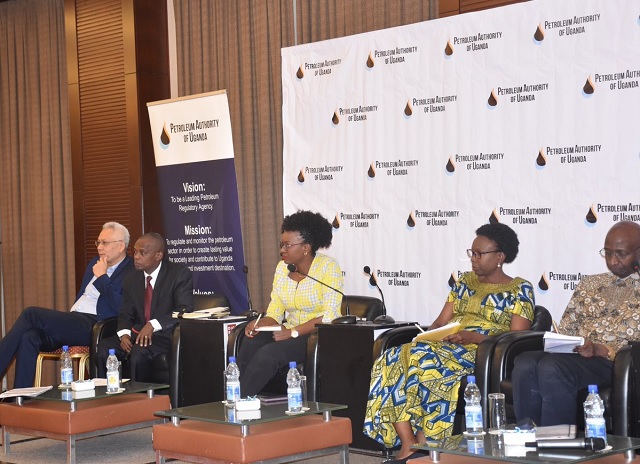
Kampala, Uganda | THE INDEPENDENT | The oil and gas industry potentially one of the most hazardous industry sectors will require providers of health services to meet high occupational health and safety standards.
Petroleum Authority Executive Director, Dr Ernest Rubondo says while there are opportunities for health service provider to tap into oil cash, many could up as spectators if they failed to meet the high standards.
It is emerging that most of the health service providers cannot meet occupational safety standards as the country prepares to pump oil out of the ground.
Some players in the health sector on Friday admitted that health facilities in the country may need to do more to be able to meet occupational and safety standards for the oil and gas sector.
They were at a meeting convened the Petroleum Authority of Uganda about opportunities for private health investors in the oil and gas sector.
The oil and sector workers face a number of occupational risks and hazards related to the use of heavy and powerful equipment, exposure to flammable chemicals and processes that can lead to accidents and even death. Health services providers are required to have put in place adequate response mechanisms but is emerging that less than handful meet the standards.
Professor Pauline Byakika, the Medical Advisor for Total and Tullow Uganda said safety and occupational health standard requirements in the oil and gas industry are high.
She says the oil and gas operation areas are expected to have a big influx of local and foreign workers and therefore requiring high standard health facilities to handle a range of illnesses and injuries related to the sector. It is also anticipated that there will be an increase in non-communicable diseases like hypertension, diabetes, stroke among others.
Professor Byakiika told Uganda Radio Network that time away from home, long work days, and high physical demands takes a hefty toll on workers can lead to higher chance of accidents in oil and gas operations. There is no information on whether workers currently employed in the sector have suffered those injuries during the drilling and exploration stages.
Byakiika says the likelihood that accidents and even death cannot be ruled out during production stage. Statistics by the US Bureau of Labor Statistics in 2015 revealed that workers in the oil and gas extraction industry faced the highest at risk of injuries and fatalities on the job compared to all other industries in the United States.
Dr. Pierre Ngondara, Total’s Chief Medical officer, said while some of the hospitals can treat of the likely accidents, some of them would require medical evacuation services to Kampala or abroad.
The Dean of the Institute of Public Health at the Virtual University of Uganda, Dr. Alex Opio said the oil and gas industry health providers will be required to meet local but mostly international standards to ensure safety of the workers.
Opio, also the chair of the Medical Arbitration’s Board expressed fear that the fatality rates could be much higher in oil of accidents if proper response mechanism are not in place when oil production begins.
Her says oil and gas players have to abide by the international health regulations 2005 on response to emergencies in public health Dr. Deogratius Ssekimpi, an Occupational Health and Safety Specialist admits that Uganda needs to develop systems in emergency care and occupational health.
He says capacities in occupational health, emergency care and safety are currently still low in Uganda.
Without those, Ssekimpi says Uganda will lose huge amounts of money in case of frequent medical evacuations to countries that already built capacity in occupational health and safety.
*****
URN
 The Independent Uganda: You get the Truth we Pay the Price
The Independent Uganda: You get the Truth we Pay the Price


